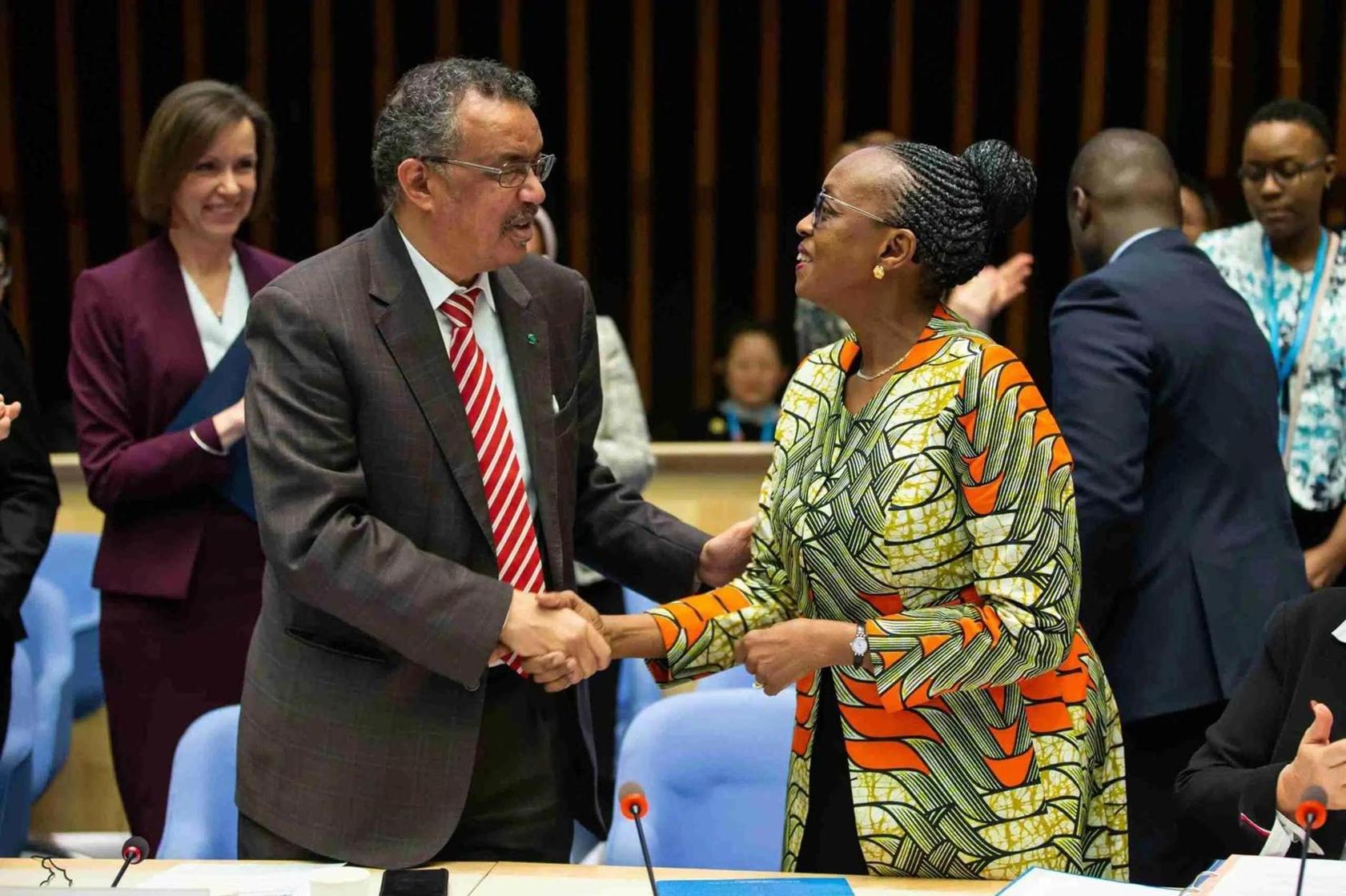Africa-Press – Botswana. President Dr Mokgweetsi Masisi has emphasised the need for developed countries and partners to align their funding with regional and national priorities, including reducing conditionalities on voluntary contributions.
Officially opening the WHO Regional Committee for Africa (RC73) Conference in Gaborone yesterday, President Masisi stated that removing conditionalities and allowing more flexibilities in spending had the potential to unlock the financial resources that would enable WHO to cross-fund other broad priorities, thus providing adequate leadership and technical support to countries.
In terms of health financing, the President said WHO had reported that in order to achieve the third Sustainable Development Goal (SDG 3) on healthy lives and wellbeing for all ages, the sub-Saharan African countries needed to spend an average of 7.5 per cent of the region’s Gross Domestic Product (GDP) or US$271 per capita per year on health.
“Currently, sub-Saharan countries spend an average of US$180 per capita per year on health. Many countries in the African region are still far from meeting key health financing goals such as the Abuja Declaration target of allocating 15 per cent of the government budget to health,” he said.
However, President Masisi acknowledged reforms by WHO Africa region that had increased access to health services and financial risk protection, moving countries closer to advancing universal health coverage.
He added that, as was the case with the WHO Constitution, Botswana recognised that enjoying the highest attainable standard of health was one of the fundamental rights of every human being without distinction of race, religion, political affiliation, economic or social condition.
He said Botswana had made substantial advancements in improving the health of its people, adding government would continue to demonstrate the highest political commitment and willingness to ensure health for all as demonstrated by the 2021 Presidential Reset Agenda.
He said the Presidential Reset Agenda outlined achieving good health outcome as a key national development priority to enable active and inclusive participation of Batswana in the economy.
He also indicated that government was funding about 80 per cent as a share of domestic health expenditure, hence the Ministry of Health was allocated the largest share of the recurrent budget at about 17.1 per cent in the 2023/2024 national budget.
Furthermore, President Masisi said Botswana was on the path to eliminate Malaria, having sustained a low incidence rate of below one per 1 000 population in the last five years.
“Through the WHO Global Malaria Programme of E-2025 initiative, Botswana is one of the countries that are fully committed to Malaria elimination by 2025,” he said.
The President said the biggest health challenge that Botswana was currently facing was being locked in an epidemiological transition from communicable diseases to an increasing burden of non-communicable disease.
He said the increasing challenge of NCDs included a 31 per cent increase in heart diseases,19 per cent increase in stroke cases and a 40 per cent increase in diabetes.
As such, he urged WHO to pay particular attention to tailor its support to the needs of countries that were faced with the double burden of communicable diseases and NCDs.
“Ambitious global targets have been set to improve the health of billions of people, under the triple billion targets with one billion more people benefiting from universal health coverage, one billion more people better protected from health emergencies and one billion more people enjoying better health and well-being,” he added.
President Masisi highlighted the importance by the WHO AFRO supreme regional meeting to soberly and expertly reflect on the targets to save the lives of many people, particularly the most vulnerable.
For More News And Analysis About Botswana Follow Africa-Press






